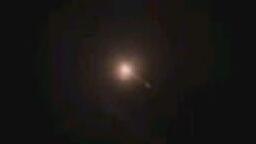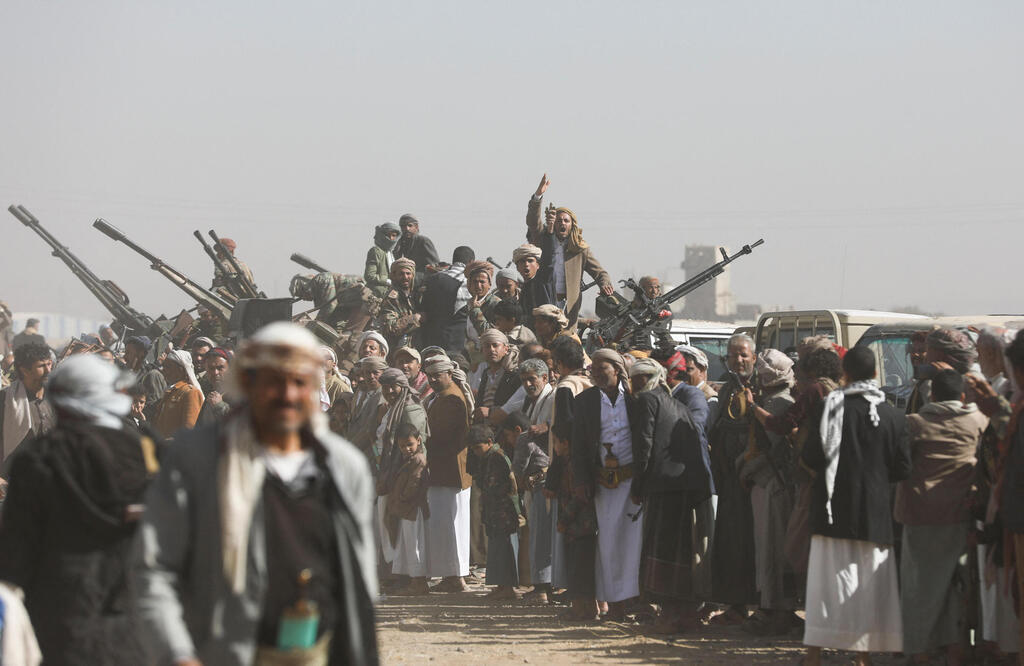“There is no military or strategic significance to these missiles. Israel can easily intercept them,” said Danny Citrinowicz, a research fellow at the Tel Aviv-based Institute for National Security Studies’ Iran Program. “In terms of military impact, the attacks are insignificant. But in their own minds, these actions reinforce their position and demonstrate that they are continuing to fight.”
Despite the attack’s limited military impact, some experts warn that the Houthis’ intent should not be underestimated. Lt. Col. (res.) Maurice Hirsch, a director at the Jerusalem Center for Security and Foreign Affairs, pointed to their ideological motivation. “The Houthis’ goal is to murder Jews, to murder Israelis. Whether it’s one rocket or 10, the possibility of these rockets hitting civilian areas is always high,” he said. “They are part of Iran’s Axis of Terror and are being used by the Iranians to advance their objectives.”
Despite these U.S.-led attacks, the Houthis remain capable of launching strikes against Israel. Experts suggest that while the attacks did not cause casualties or significant damage, Israel cannot afford to dismiss them.
Hirsch argues that Israel must broaden its strategy beyond targeting Yemen-based Houthi positions. “The response to the Houthis should not be limited to Yemen. It should also target their patrons,” he said, referencing Iran’s role in supporting the group. He emphasized that Iran is using the Houthis as part of its broader effort to destabilize the region and test Israel’s military responses.
However, analysts debate how much direct control Iran has over the Houthis. “The Houthis are not a typical proxy; they have their own independent agenda. Iran has limited influence over their strategic decisions,” Citrinowicz explained. “Even if Iran were pressured, the Houthis would still continue their activity because it serves their interests. So, attacking Iran is not the solution.”
3 View gallery


Protesters holding portrait of Houthi leader Abdul Malik al-Houthi in Yemen
(Photo: REUTERS/Khaled Abdullah)
Beyond Israel, the Houthis’ continued attacks in the Red Sea pose a major threat to global trade, as disruptions to maritime routes impact economies worldwide. The US and its allies are expected to continue targeting Houthi positions, but it remains uncertain whether these efforts will significantly weaken the group.
“The best approach is continuing targeted strikes against their leadership—assuming we have the right intelligence for it—and damaging their missile production capabilities,” said Citrinowicz. “But the Houthis are a very difficult adversary. Their decision-making process is different from other groups, and creating deterrence against them has proven extremely challenging.” He pointed to Saudi Arabia’s years-long struggle against the Houthis, noting that “conventional military responses alone are insufficient.”
“The Houthis are not just a regional nuisance; they are a movement driven by a messianic ideology. They believe their struggle is divinely mandated and that suffering and resistance are proof of their righteousness,” Hirsch explained. “Unlike other Iranian proxies that are primarily political-military organizations, the Houthis see themselves as a religious movement with a mission to spread their interpretation of Islam beyond Yemen.”
If the Houthis continue attacking Israeli-linked targets, Saudi Arabia may find greater incentive to strengthen its security ties with Israel. “Saudi Arabia has long feared Iranian expansionism, and the Houthis are a clear example of what Iran’s influence can create,” Barak said. “This could push the Saudis to prioritize their security ties with Israel over concerns about Palestinian-related issues.”






